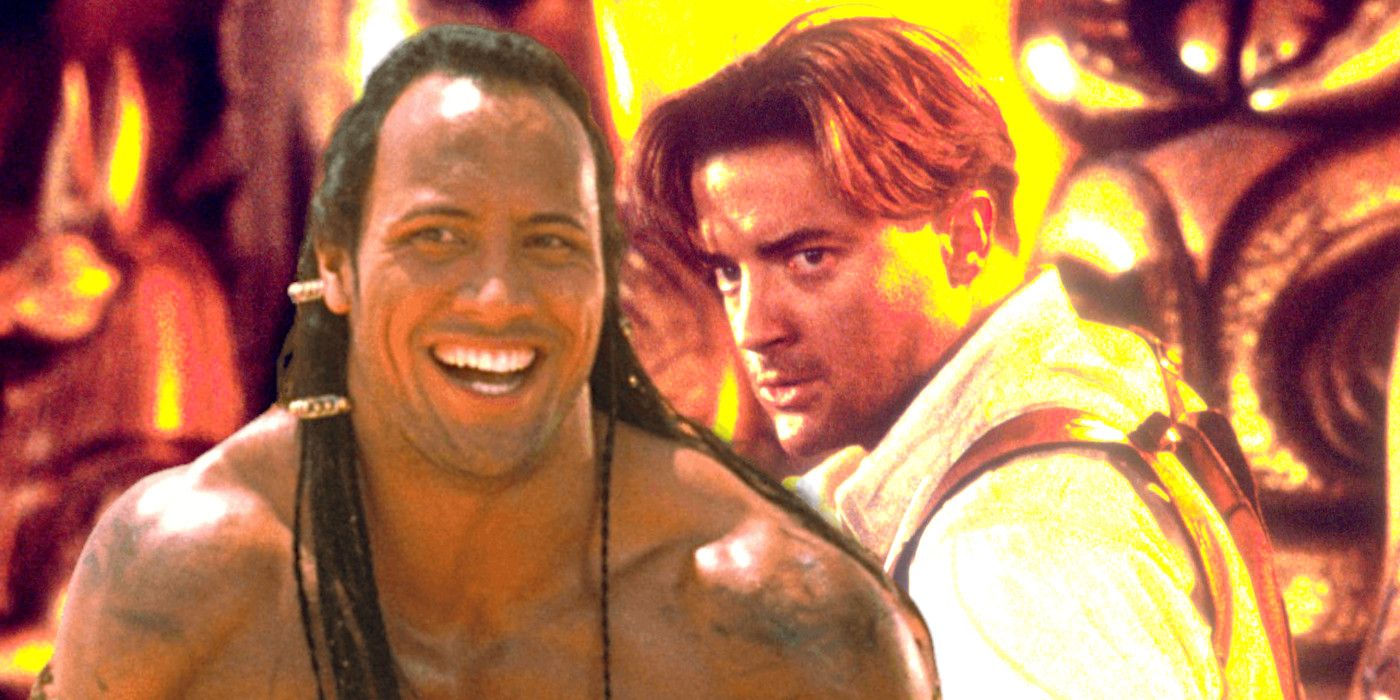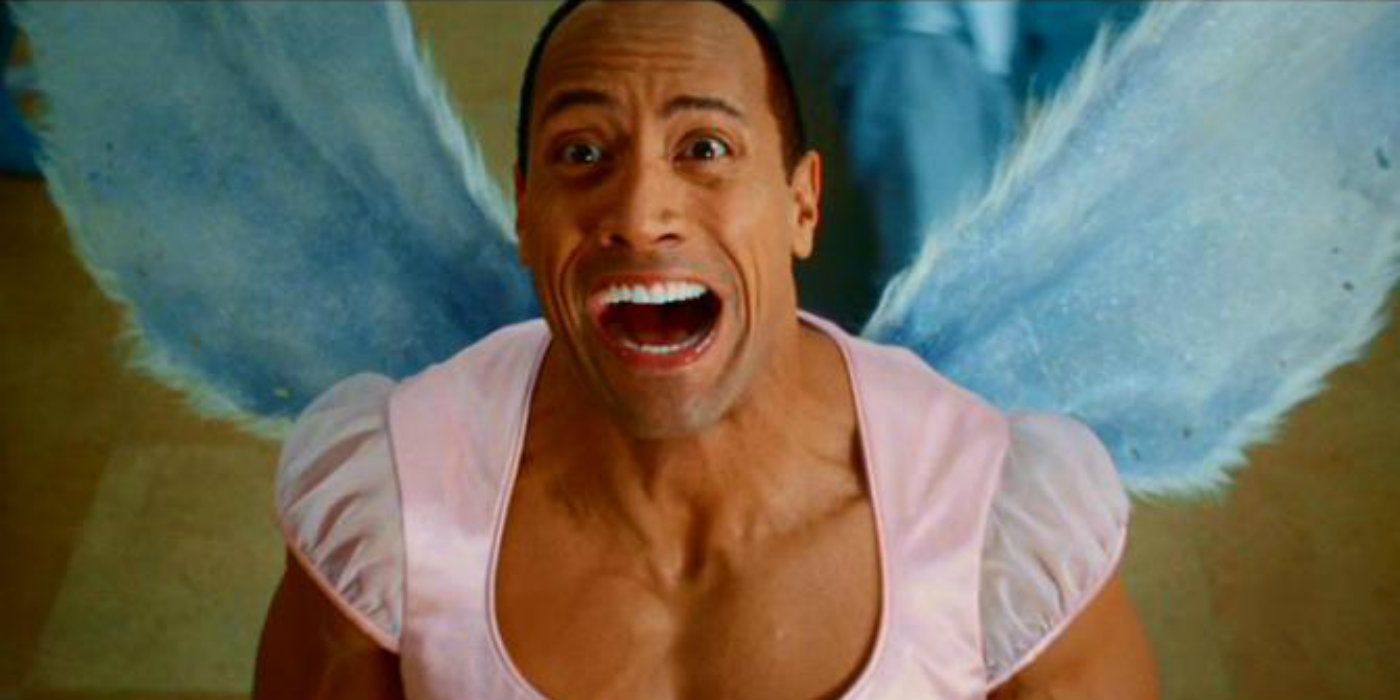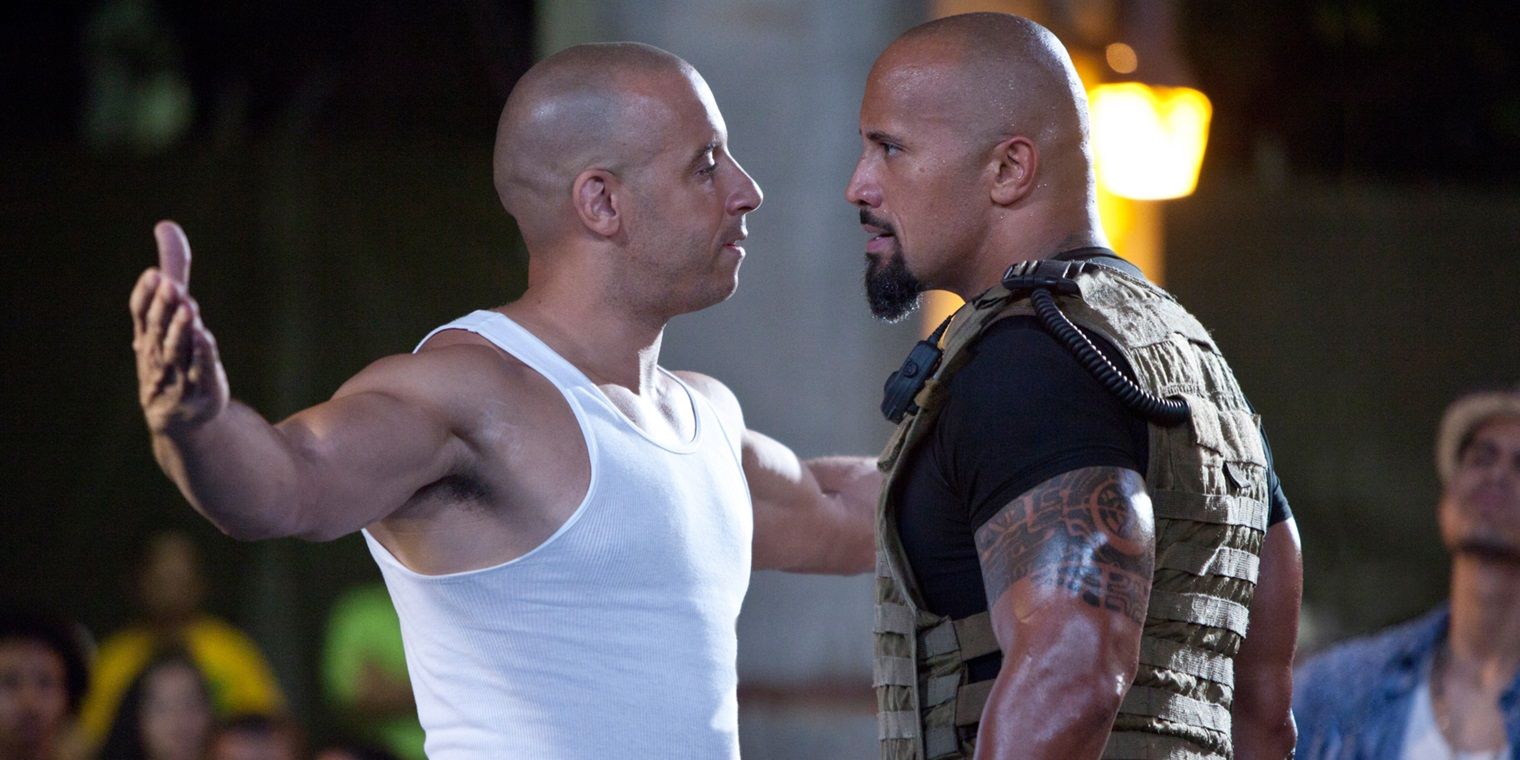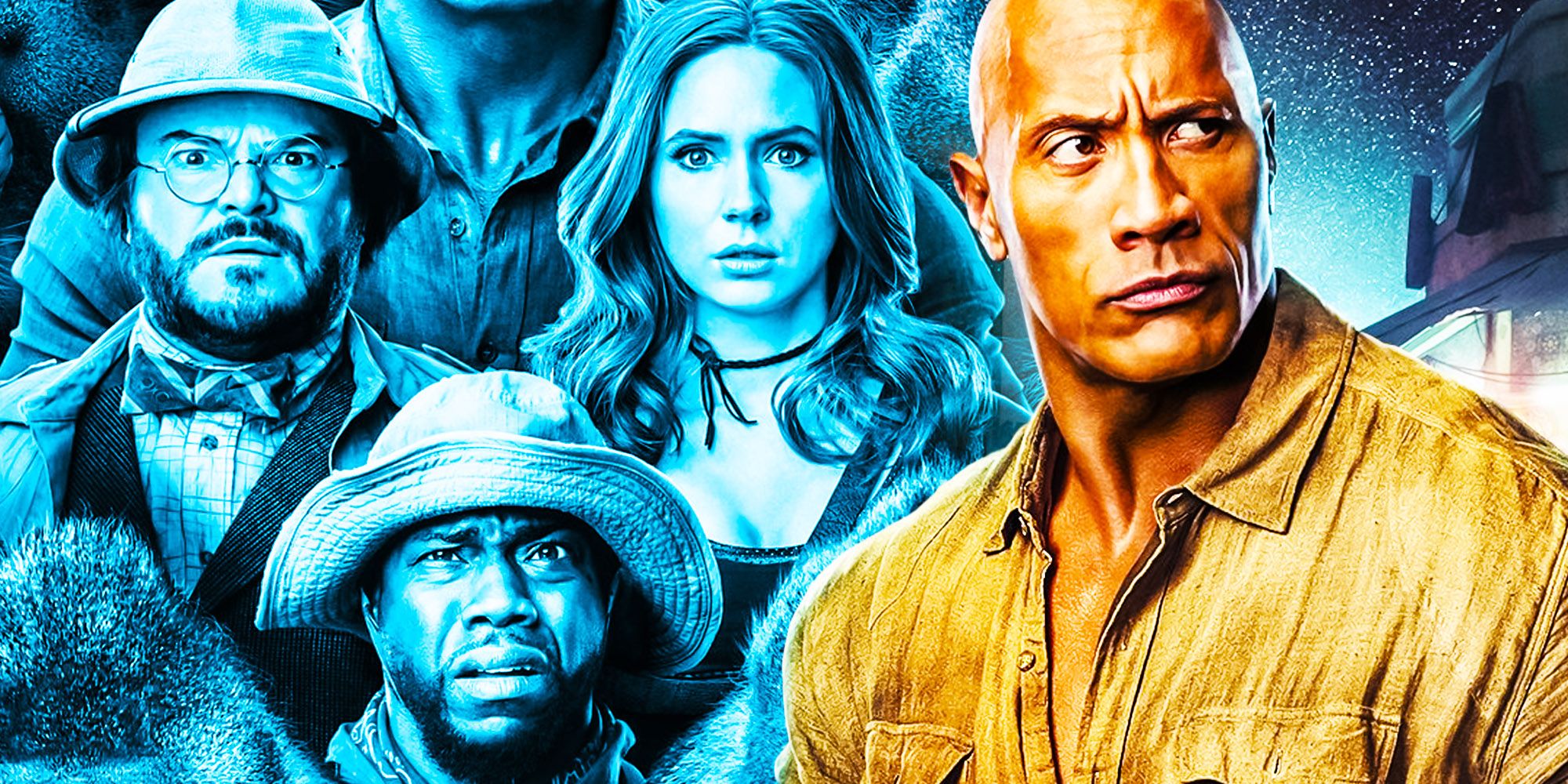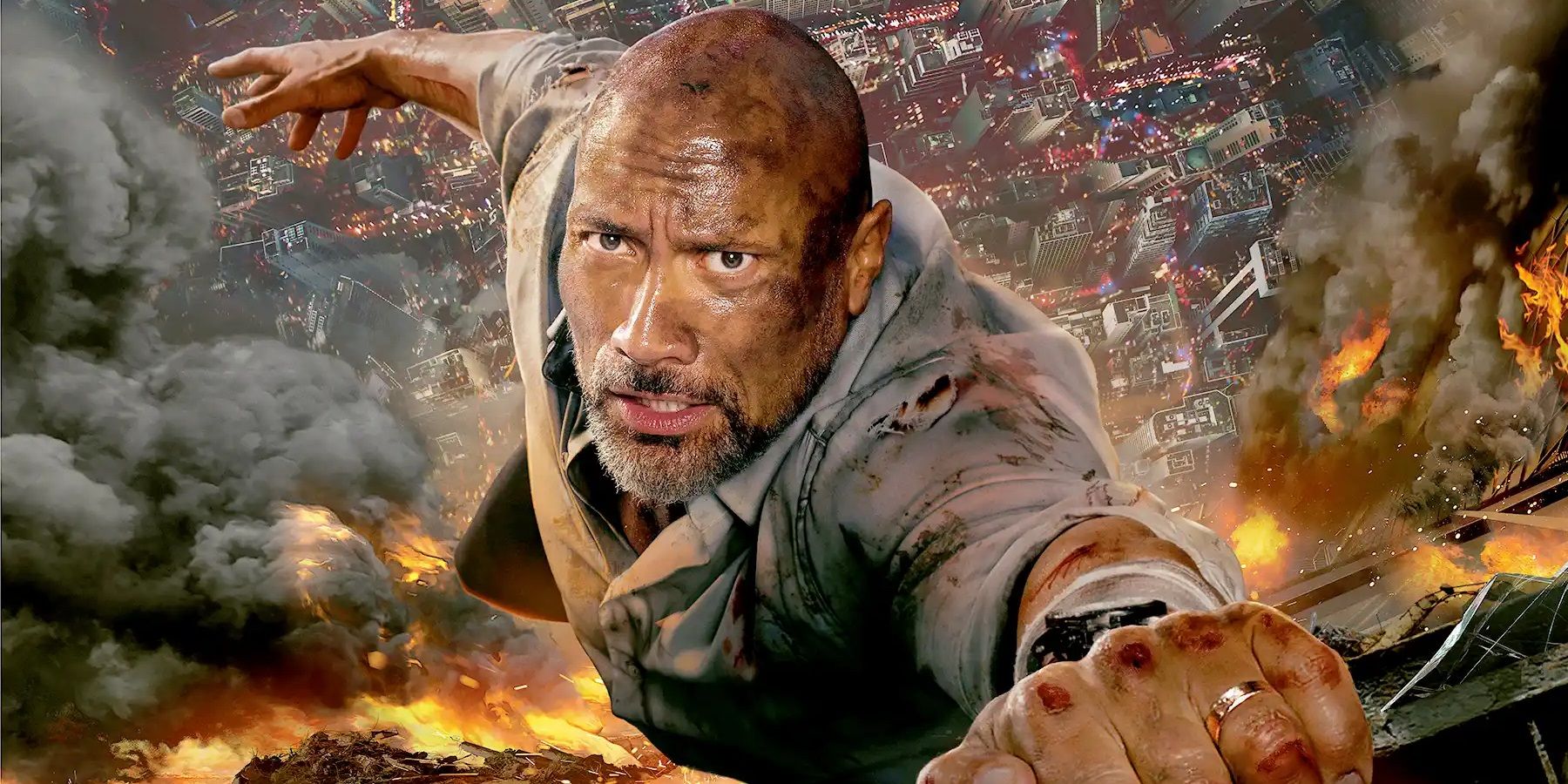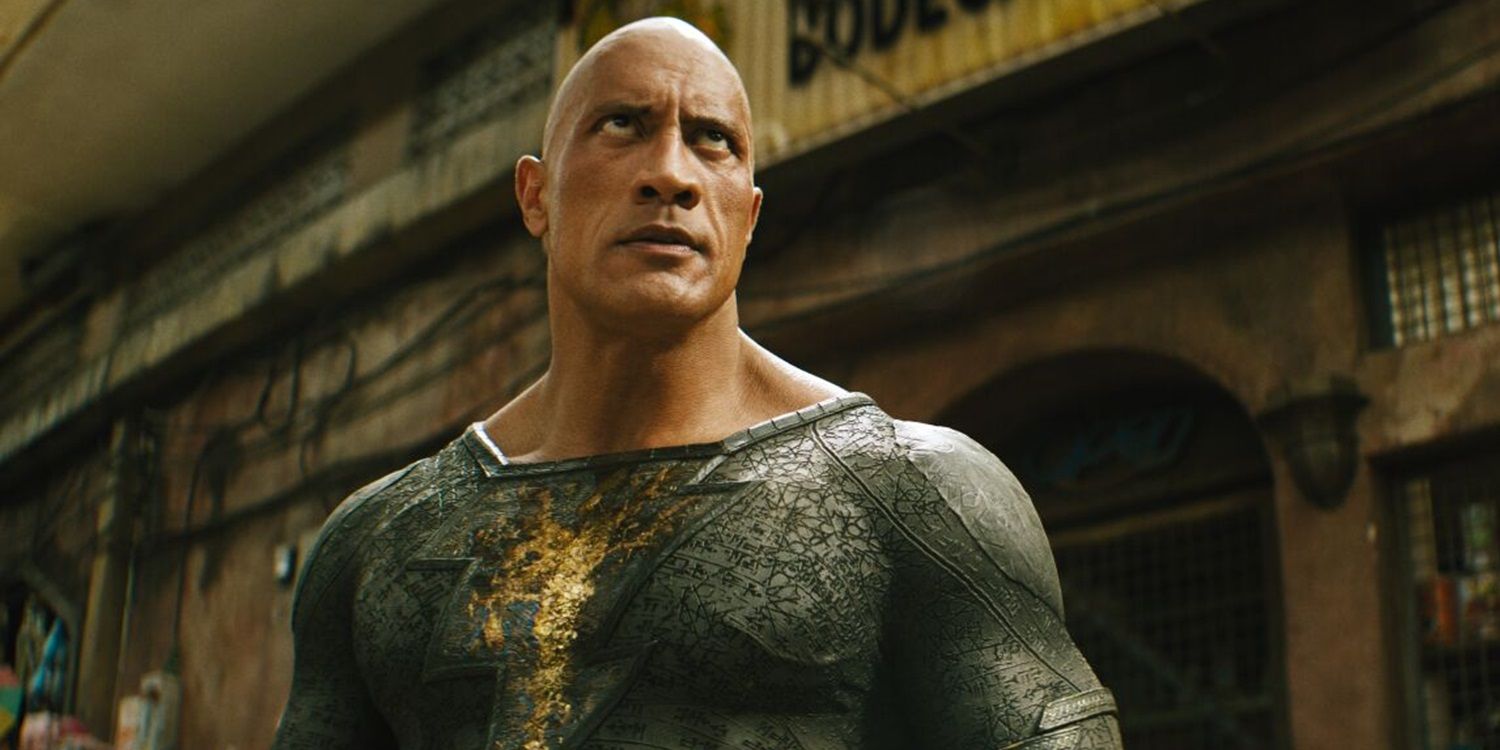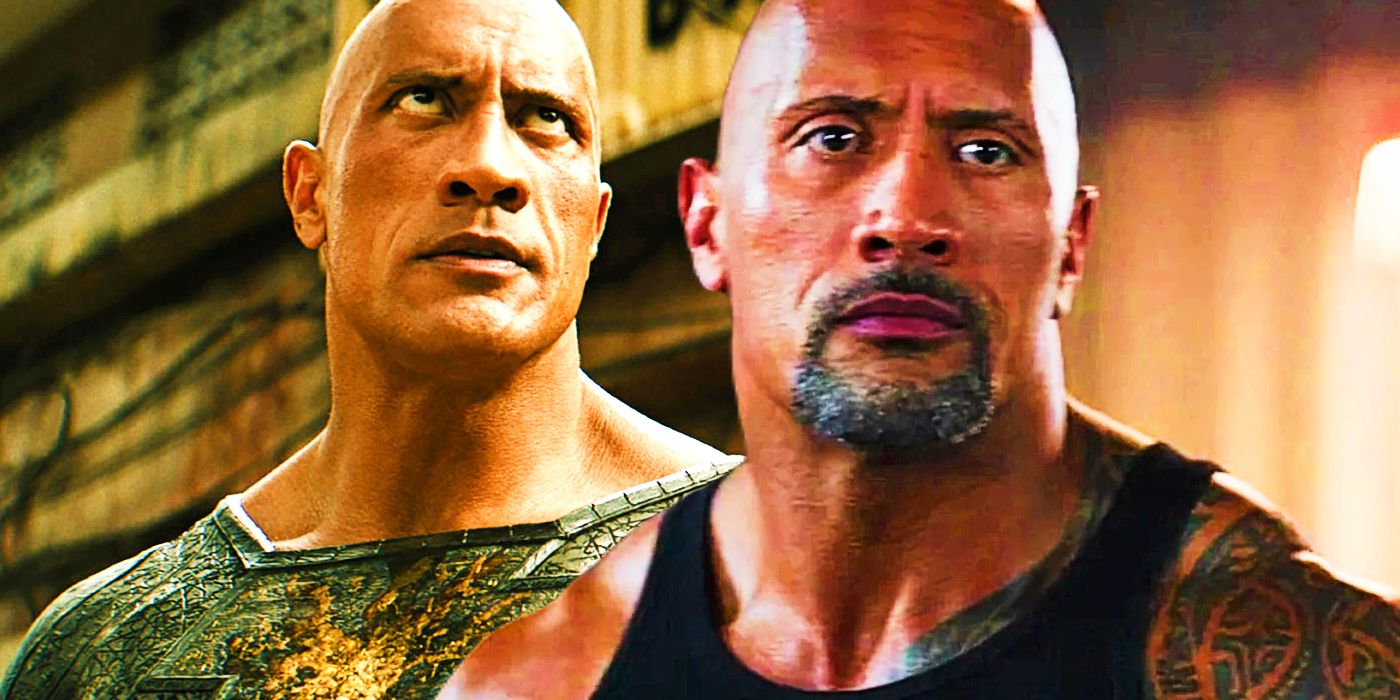Following the success of The Mummy Returns, Johnson’s second role – and first starring role – was a Mummy Returns spin-off, The Scorpion King, in 2002. While The Scorpion King scored a 41 percent on Rotten Tomatoes (after The Mummy‘s 60 percent and The Mummy Returns‘ 46 percent) and earned $165.9 million worldwide. Its box office was a big drop from The Mummy Returns, but as a spin-off with a much lower budget, it was still a modest success, especially for Johnson’s first lead role. The success of The Scorpion King led to four additional straight-to-video sequels, although Johnson wasn’t involved beyond the first Scorpion King.
The Rock’s Kids & Family Movies Were His Biggest 2010s Hits After The Mummy Returns
Following his success in The Mummy Returns and The Scorpion King, Johnson had a number of smaller movies, most of which flopped at the box office. The Rundown earned $80.8 million in 2003, Walking Tall earned $47.9 million in 2004, Be Cool earned $94.9 in 2005, Doom (a movie that was expected to prove The Rock’s viability as an action star) bombed with $58.8 million in 2005, and Gridiron Gang earned $41.5 in 2006. While those movies had low or mid-range budgets, none of them recouped their costs using the traditional 2.5x production budget break-even rule of thumb.
Johnson had much more success with kids & family movies. In 2007, The Game Plan earned $146.6 million, in 2009 Race to Witch Mountain earned $105.1 million, and in 2010 The Tooth Fairy earned $112.6 million. His biggest hit in that period was Get Smart, which earned $226.7 million in 2008, although he was merely a supporting role to Steve Carell and Anne Hathaway. Despite his wrestling background and imposing physique, he had trouble finding new success in the action genre in the 2010s. Even after his stretch of kids’ movies, Johnson had another action flop with Faster in 2009, earning just $35.8 million.
Fast Five Changed Everything For Both Dwayne Johnson And The Fast and The Furious Franchise
The Rock’s 2010s movies were mostly hit-and-miss at the box office, his career saw a major boost after his debut as Hobbs in Fast Five. Prior to Fast Five, Johnson’s average box office through 17 movies was $112.6 million, but after Fast Five, his average skyrocketed to $446 million for the next 25 movies. To be fair, he had several hits prior to Fast Five as mentioned with his debut as the Scorpion King in The Mummy Returns, but there was no residual impact from The Mummy Returns’ box office on his next movies, while Fast Five gave a very clear and immediate surge in his box office draw.
The clearest sign of Johnson’s career boost following Fast Five‘s release in 2011 can be seen in another kids & family movie, Journey 2: The Mysterious Island in 2012. His previous kids’ movies averaged around $140 million, but Journey 2: The Mysterious Island (ironically another sequel to a box office success starring Brandon Fraser), which earned $318.1, more than double his kids & family movie box office average pre-Fast Five. It wasn’t just his kids & family movies that saw a box office boost, though. Fast Five finally proved his value to action franchises, making him a valuable addition to ensemble casts.
The Rock’s Biggest Hits Have All Been Fast and Furious or Other Ensemble Movies
Despite the massive box office boost to his post-Fast Five career, Johnson’s highest-grossing movies are all either his appearances as Hobbs in more Fast and Furious sequels or ensemble movies with other bankable stars. His highest-grossing movies are 2015’s Furious 7 with $1.5 billion worldwide, 2017’s Fate of the Furious with $1.2 billion, 2017’s Jumanji: Welcome to the Jungle with $961.6 million, 2019’s Jumanji: The Next Level with $798.2 million, 2013’s Fast and Furious 6 with $789.3 million, 2019’s Fast & Furious Presents: Hobbs & Shaw with $760.7 million, 2016’s Moana with $630.6 million, and 2011’s Fast Five with $630 million.
There’s nothing wrong with his biggest roles coming from ensembles. It should actually be expected, as with franchises like the MCU, it’s normal for team-up movies to make more than solo movies; however, this doesn’t fit with the brand of Dwayne “The Rock” Johnson as a bankable movie star in his own right, and may have had something to do with him distancing himself from the Fast and Furious franchise for a period of time. On the flip side, his return to the franchise coming after a few box office bombs suggests he recognizes the boost he gets from big ensemble casts.
The Rock’s Biggest Solo Movies Haven’t Been Big Enough Box Office Hits
That’s not to say Johnson isn’t a bankable star. San Andreas, a movie sold entirely on his name and face, earned $456.3 million globally with modest hits from other starring roles like Skyscraper‘s $304.9 million or Hercules‘ $243.4 million. Even Black Adam‘s $391.3 million would be a big hit if it weren’t for the movie’s massive budget and repeated boastful claims that “the hierarchy of power in the DC Universe is about to change.” His big solo hits are comparable in box office to many MCU solo movies, but never quite on the level of Robert Downey Jr.’s solo success with Iron Man 3‘s $1.2 billion.
The biggest problem with his starring roles is that, despite their success, none of them were super hits or big enough to create demand for a franchise. Another problem is the high-profile box office flops like Baywatch and Jungle Cruise that prove his name alone isn’t enough to draw a crowd. Ironically, his biggest hit without an ensemble is Hobbs & Shaw, but that’s both a Fast and Furious spin-off and also saw a box office drop compared to previous Fast and Furious movies, which doesn’t help sell the idea that Johnson can carry a franchise on his own apart from the rest of the Fast and Furious cast.
Dwayne Johnson’s Box Office Magic Didn’t Meet the Hype
Ironically, the biggest problem with The Rock’s box office on his starring roles isn’t his ability to sell tickets – it’s his ability to sell tickets to match his own hype. Coming up in professional wrestling, the public image of a performer is innately tied to their character’s persona. While Johnson has sidelined The Rock persona in favor of “Dwayne Johnson,” the expectations are still there. His filmography and box office are more than sufficient to make him one of the biggest stars in the world, but they don’t quite support the unstoppable brand image of “Dwayne Johnson” established in interviews and on social media.
Ironically, The Rock’s career would look a lot more like Vin Diesel’s if he hadn’t built a big movie star image. Diesel is known for iconic roles in smaller roles like Riddick and Xander Cage, and even The Fast and the Furious started out the same way before the franchise exploded at the box office with Fast Five. Like Johnson, Diesel’s biggest hits are ensemble movies like Fast and Furious and Guardians of the Galaxy while his solo movies are all modest low-budget hits. The difference is Diesel doesn’t project the same movie star persona, so even smaller Vin Diesel roles like Riddick, Xander Cage, or Bloodshot don’t look so humbling.
The big difference, of course, is Vin Diesel’s Dominic Toretto is at the head of the Fast and Furious movies, and Johnson could never usurp that role with Hobbs. Hobbs and Shaw could have given him similar footing to Diesel in the franchise if it had been a bigger hit, but Johnson’s participation in the Fast and Furious movies requires Hobbs to play eternal second fiddle (at best) to Diesel’s Dom. Black Adam was the big gamble for Johnson. If it had been a huge hit and truly changed “the hierarchy of power in the DC Universe,” he would command far more star power at the head of a franchise, but instead he has to return to Fast and Furious.
The Rock is Admitting Defeat By Returning to the Fast and Furious Franchise
Prior to Fast Five, the highest-grossing movie in the franchise was Fast and Furious at $360.4 million. Fast Five made $626.1 million, supercharging the franchise at the box office, so it’s easy to make an argument that Johnson’s addition was the reason for the box office growth. While that may be partially true, Johnson owes just as much credit to Fast Five for the growth in his own career. The clear demarcation in his box office draw before and after Fast Five proves its role in making him the star he is now, but his solo box office apart from Fast and Furious also proves his dependence on the franchise.

